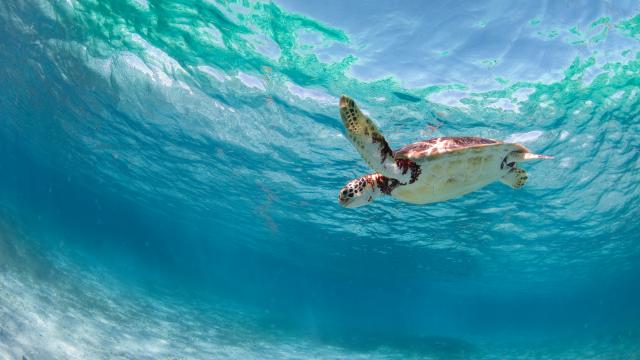1. Make responsible seafood choices
The oceans are home to almost a million species and are a vital source of food and income for over 800 million people globally, yet fishing is the biggest threat to marine biodiversity. Roughly 94% of fish stocks are overfished (34%) or maximally sustainably fished (60%) and aquaculture has its own issues.
When responsibly sourced, seafood can be part of a diet high in human health benefits and low in environmental impacts. By choosing a diverse range of seafood from well managed sources you can reduce pressure on more popular fish. You can also help to lower marine pollution risk by eating lower in the food chain, as farmed filter feeding species like mussels don’t require feed. And how about trying seafood from lower carbon emission sources, like Moroccan sardines caught by purse seiners? By making a few changes to the seafood you eat you can protect the healthy balance of our oceans.
For more information on how to make environmentally responsible seafood choices take a look at our Seafood Top Tips page.

2. Cut your emissions
The marine ecosystem is fragile and susceptible to change, leaving it particularly vulnerable. As the climate warms, so do our oceans. This impacts the biodiversity of our seas by changing the core interactions that they rely on to survive.
Coral reefs cover less than 0.1% of the ocean, yet more than a quarter of all marine species depend on them. If water temperatures continue to rise at the current rate, the ocean will become too warm for coral reefs by 2050. This would be a huge blow to marine biodiversity and could change the way our oceans work forever.
Warmer seas also affect the spawning success of commercially fished species, such as pollock or cod. The successful spawning of pollock could decrease by 58% by 2050, which would seriously impact the future of the species. If we want to be able to continue to eat seafood in a sustainable way, we must combat the issue of climate change to ensure that the marine environment remains habitable for all fish species.
Work to cut your emissions by flying less frequently, reducing your meat and dairy intake and taking public transport more often. Use your voice and let our government know that you want them to take the climate emergency seriously. For more information on ways to cut your emissions check out our 10 things you can do page or join us at our Time is Now lobby on 26th June.
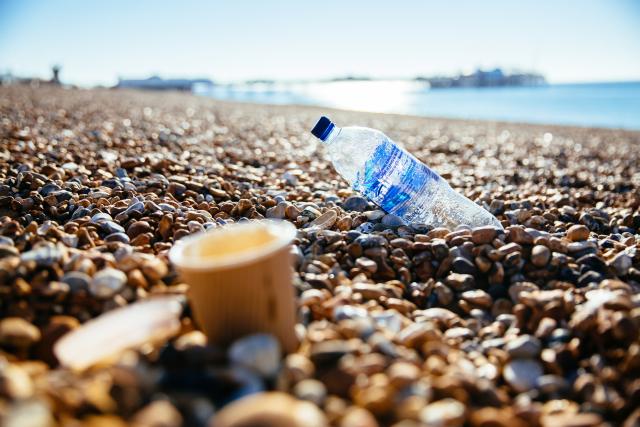
3. Keep plastics away from beaches
By 2050 there could be more plastic in the sea than fish. This trend cannot continue. But we can make a difference if we each take a personal responsibility to reduce our use of plastic as much as possible. This will put pressure on companies to take plastic pollution seriously and reduce it in their production.
When you go to the beach make sure to take as little plastic with you as possible. Even if you intend to throw it in the bin or recycle it, you never know when it could fall out of your bag and onto the beach. This means bringing reusable water bottles, bags and straws with you. You might even find it useful to bring some reusable cutlery to avoid having to use plastic knives and forks from the beach bar.
Make sure you clear up any rubbish when you leave. Leaving waste on the beach means that it is likely to end up in the ocean and harm marine wildlife. There are often beach cleans organised in coastal areas, so keep an eye out for one near you!
There is no excuse for leaving plastic behind. So, when you next head to the beach make sure you leave only footprints – not plastic!
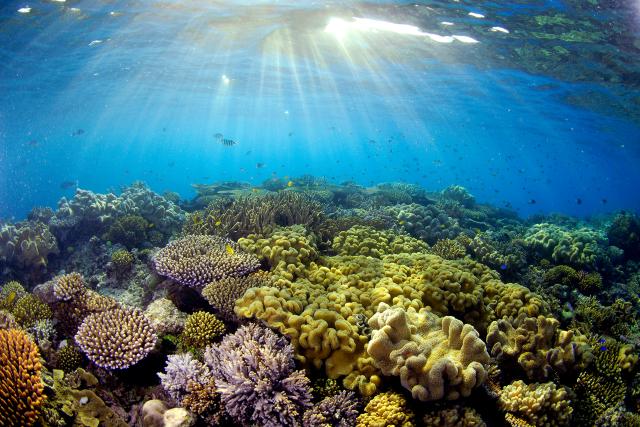
4. Use reef-safe sun cream
We all put on sun cream when we go to the beach, but do you know the damage it causes when it washes off into the sea? Two of the most frequently used ingredients in sun cream, oxybenzone and octinoxate, can harm marine life. These chemicals are deadly to corals and causes them to bleach, which can be fatal. They also can cause DNA damage in the coral that leads to growth defects.
Damage to marine life is also not limited to corals and can also directly impact certain species of fish, sea urchins and shrimp. However, the fact that these chemicals have such a profound effect on coral reef ecosystems, means that they have the potential to detrimentally affect the broad biodiversity of species that rely on corals for their survival.
It’s not all bad news though - you can buy reef-safe sun cream that doesn’t include either of these ingredients to make sure you are causing as little harm to the ocean as possible. This is particularly important if you are holidaying in tropical areas, where coral reefs form the foundation of rich marine ecosystems.
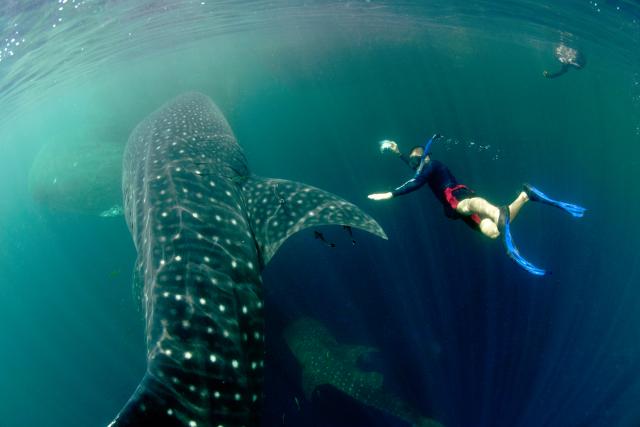
5. Use sustainable tourism companies
The tourist industry is essential for providing a stable income for local communities in coastal areas. Eco-tourism is important for educating about the wonders of marine ecosystems whilst also promoting a stable economy that relies on the ocean.
However, if you are going to partake in a trip that involves marine life, make sure that the company you are travelling with is sustainable. Whether you are going whale watching or snorkelling, organisations profiting off eco-tourism should have the conservation of our seas at the heart of them.
So before you book anything, do your research and make sure that your excursion wont cost the ocean. There are plenty of organisations that work to connect the tourist industry with our seas in a sustainable way, so finding an appropriate trip shouldn’t be difficult.
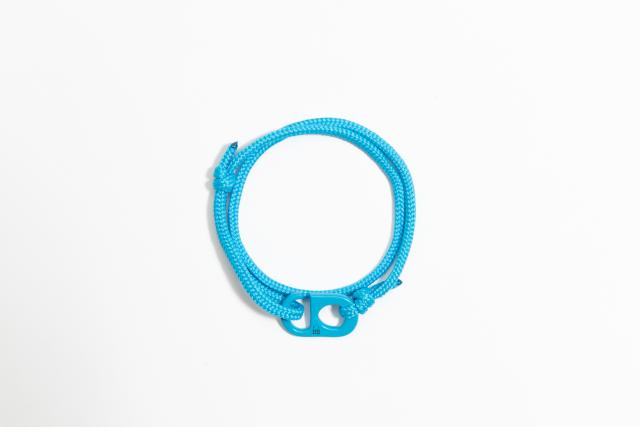
6. Support #TOGETHERBAND
#TOGETHERBAND supports all of the 17 UN Global Goals, but we have decided to support Goal 14: Life Under Water.
Made from recycled plastic, the profits from this #TOGETHERBAND will support our Tanzania Marine Programme.
We work on a number of conservation and development projects in coastal Tanzania, working with local communities, businesses and government to help protect their environment, green their economy and build a more sustainable future.
We aim to ensure the sustainable management of Tanzania’s vital coastal seascape; protecting the incredible variety of wildlife, and the people who depend on its resources.
